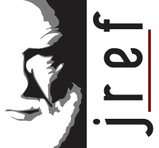The Nightingale Collaboration, an organization challenging misleading claims in healthcare advertising in the UK, brings us word that homeopathy has gotten a serious credibility blow today.
The UK’s National Health Service (NHS), Lanarkshire branch, completed a four year review of the practice of referring patients to the Centre for Integrative Care (CIC, formerly known as the Glasgow Homoeopathic Hospital GHH). After an examination of literature on the supposed health benefits of homeopathic remedies, the decision was to cease all referrals.
What does this mean for homeopathy in the UK and around the world? Well, it is clearly not good if you endorse or make money from this unscientific form of alternative medicine.
The UK’s National Health Service (NHS), Lanarkshire branch, completed a four year review of the practice of referring patients to the Centre for Integrative Care (CIC, formerly known as the Glasgow Homoeopathic Hospital GHH). After an examination of literature on the supposed health benefits of homeopathic remedies, the decision was to cease all referrals.
What does this mean for homeopathy in the UK and around the world? Well, it is clearly not good if you endorse or make money from this unscientific form of alternative medicine.
Dr Harpreet Kohli, chair of the NHS Lanarkshire review, presented the final report to the Board today which concluded that there was insufficient evidence to support the continued use of the services – including homeopathy – provided by the CIC.
Although patients expressed support for the services of the CIC and claimed to have benefitted from them, there is clear evidence that homoeopathy and the other services such as "Mindfulness-based cognitive therapy", mistletoe for cancer, and "music and movement therapy" were lacking in terms of therapeutic benefit and should not be part of the NHS services.
The literature review included in the report noted the following regarding homeopathy:
Although patients expressed support for the services of the CIC and claimed to have benefitted from them, there is clear evidence that homoeopathy and the other services such as "Mindfulness-based cognitive therapy", mistletoe for cancer, and "music and movement therapy" were lacking in terms of therapeutic benefit and should not be part of the NHS services.
The literature review included in the report noted the following regarding homeopathy:
The literature reviewed in relation to homoeopathic care for various conditions including fibromyalgia (coping with pain and depression), prevention and treatment of influenza and influenza-like illness, therapy for preventing or treating the adverse effects of cancer treatment, attention deficit/hyperactivity disorder (ADHD) and insomnia, found insufficient or no evidence to support homoeopathy.
Co-Director of the Nightingale Collaboration, Alan Henness, told the JREF that this development is another black mark for the legitimacy of homeopathic practice in the UK.
This decision follows others in recent years from NHS Highland and NHS Lothian. It is good to see NHS Lanarkshire taking an evidence-based approach to the provision of healthcare for their patients.
He suspects that after this careful and thorough examination, this will have further ramifications to other “homeopathic hospitals in London and Bristol, and may mean the end of the Glasgow Homeopathic Hospital (GHH)".
Given that their colleagues in Lanarkshire have carefully and thoroughly examined the scientific evidence for the treatments provided, NHS Greater Glasgow and Clyde, who run the Glasgow Homeopathic Hospital, must take a serious look at the GHH and decide whether they should now finally close the premises and put the £2 million building to better, evidence-based, use.
We hope the Trusts running [the other hospitals providing similar treatments] will also take note of today's decision.
Officials in the UK have been debating the merits of offering homeopathy as a treatment for years now. The UK health minister, Jeremy Hunt, defended homeopathy and argued that it should be provided by the NHS (a public health care system). Claims to the contrary, with huge amounts of supporting evidence, were ignored.
Members of Parliament recognized that NHS funding of homeopathy was tacit endorsement of nonsensical treatments. This could pose a harm to the public who chose homeopathy over established conventional treatments. They noted that most people do not understand what homeopathy is – thinking it is a ‘herbal’ treatment. It isn’t, but instead is a prescientific, metaphysical-based method that relies on two “laws” -- water has memory and that like cures like. The treatments are based on the use of minute (in some cases nonexistent) quantities of remedies that in larger doses produce effects similar to those of the disease being treated. [Source: Skeptic's Dictionary]
Homeopathy does not work as a medicine. There is simply no dispute about that. Henness and the Nightingale Collaboration are hopeful that this decision signals a clear direction:
Members of Parliament recognized that NHS funding of homeopathy was tacit endorsement of nonsensical treatments. This could pose a harm to the public who chose homeopathy over established conventional treatments. They noted that most people do not understand what homeopathy is – thinking it is a ‘herbal’ treatment. It isn’t, but instead is a prescientific, metaphysical-based method that relies on two “laws” -- water has memory and that like cures like. The treatments are based on the use of minute (in some cases nonexistent) quantities of remedies that in larger doses produce effects similar to those of the disease being treated. [Source: Skeptic's Dictionary]
Homeopathy does not work as a medicine. There is simply no dispute about that. Henness and the Nightingale Collaboration are hopeful that this decision signals a clear direction:
When the best scientific evidence is followed, the decline in homeopathy is inevitable.
~Alan Henness, Nightingale Collaboration


